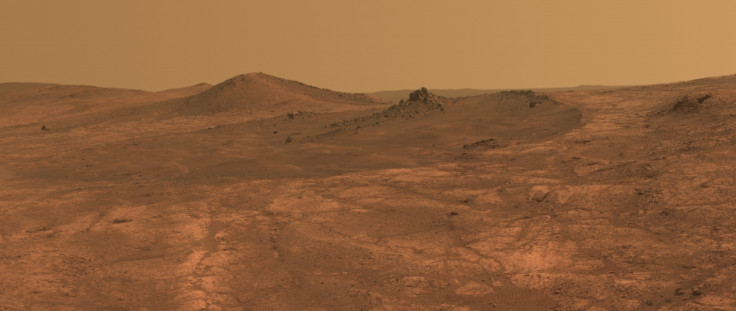Nasa space mission to collect rocks from Mars in search for alien life

Nasa's Red Dragon mission plans to send an unmanned commercial capsule, built by SpaceX, to collect rocks and then bring them back to Earth. When the capsule returns to Earth, the samples in it will be examined to see if Mars once supported life – or even if it still does.
Nasa is planning to send a new robotic rover to Mars by 2020 to bring back samples from the surface of the dead planet. According to NBC, the Ames Research Centre's Red Dragon project would involve using a SpaceX capsule to ferry rock samples collected by the new rover back to Earth, so they can be analysed for possible signs of extinct life on Mars.
Missions that bring back samples from the planet would yield many more secrets. However, these operations would be much more expensive and difficult to accomplish.
The project is "technically feasible with the use of these emerging commercial technologies, coupled with technologies that already exist," said Andy Gonzales from the Ames Research Centre, according to Tech Radar.
Our @Commercial_Crew partner @SpaceX unveiled the interior of their Crew Dragon spacecraft: http://t.co/4TRUfXIQUC pic.twitter.com/LWzbOFnQL7
— NASA (@NASA) September 10, 2015The journey back to Earth would involve special precautions to ensure the safe containment of samples. Samples from inside rocks need to be protected from exposure, as the Martian atmosphere, and radiation in space, would chemically alter them.
The rock samples could be delivered directly to Earth, but could also be returned by a Space Shuttle-like craft. Although it is highly unlikely that living organisms will be found on the samples, Nasa will implement a wide range of precautions to preclude an inadvertent release of alien life on Earth. This will analyse the samples in a contained atmosphere to determine if they are hazardous. The samples will only be released for analysis once they are determined to be safe.
Elon Musk, the billionaire founder of SpaceX believes that Red Dragon, which has the latest technological advances, could also transport people to Mars. The companies' Dragon and Dragon 2 capsules are designed to ferry cargo, with the next stage to transport astronauts to the International Space Station. The first crewed flight test sent to Mars by Nasa has been put back to 2023.
© Copyright IBTimes 2025. All rights reserved.






















